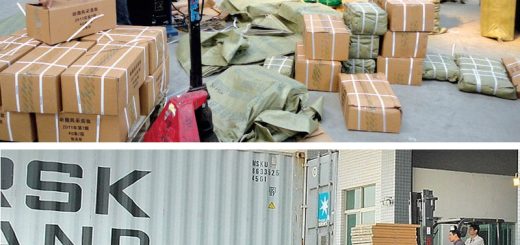California Small Farms: Importing Chinese Agricultural Tools & Supplies via Consolidation
Introduction
California’s small farms are increasingly turning to international markets to source affordable and high-quality agricultural tools and supplies. China, with its vast manufacturing capabilities, offers a wide range of products suitable for small-scale farming operations. However, importing goods from China involves navigating complex logistics and compliance requirements. Consolidation services provide a practical solution by combining shipments from multiple suppliers into a single, cost-effective delivery.
Understanding Consolidation Services
What Is Consolidation?
Consolidation involves grouping multiple smaller shipments from various suppliers into one larger shipment. This approach reduces shipping costs and simplifies the import process. For California small farms, consolidation can be particularly beneficial when sourcing products from different manufacturers across China.
Benefits of Consolidation
- Cost Savings: By sharing container space, farms can lower per-unit shipping costs.
- Simplified Logistics: Managing a single shipment reduces the complexity associated with handling multiple deliveries.
- Improved Inventory Management: Consolidated shipments allow for better planning and control over inventory levels.
- Faster Delivery: Consolidation can streamline the shipping process, leading to quicker delivery times.
Key Considerations for Importing Agricultural Tools from China
1. Product Selection
Identify the specific agricultural tools and supplies needed for your farm operations. Common items include irrigation equipment, hand tools, pest control products, and soil testing kits. Ensure that the products meet your quality standards and are compatible with your farming practices.
2. Supplier Evaluation
Research and select reputable suppliers in China. Consider factors such as product quality, manufacturing capabilities, and reliability. Platforms like Alibaba and Made-in-China.com can help connect you with potential suppliers.
3. Compliance with U.S. Regulations
Ensure that the imported products comply with U.S. regulations, including safety standards and import restrictions. The U.S. Department of Agriculture (USDA) and the Animal and Plant Health Inspection Service (APHIS) oversee the importation of agricultural products. Check their guidelines to ensure compliance.
4. Shipping and Customs Clearance
Work with a reliable freight forwarder experienced in handling agricultural imports. They can assist with shipping arrangements, customs documentation, and clearance procedures. Ensure that all necessary paperwork, such as commercial invoices and packing lists, is accurately prepared.
Steps to Efficiently Import Agricultural Tools via Consolidation
Step 1: Identify and Contact Suppliers
Reach out to multiple suppliers in China to source the required agricultural tools and supplies. Negotiate terms, prices, and lead times to ensure favorable conditions for your farm.
Step 2: Arrange for Consolidation
Coordinate with your suppliers to have the products shipped to a central consolidation warehouse in China. This facility will combine the shipments, perform quality checks, and prepare the goods for export.
Step 3: Select a Shipping Method
Choose between sea freight and air freight based on your budget and timeline. Sea freight is more cost-effective for larger shipments but takes longer, while air freight is faster but more expensive.
Step 4: Manage Customs Clearance
Ensure that all necessary documentation is prepared for customs clearance. This includes commercial invoices, packing lists, and any required certificates. Work with your freight forwarder to navigate the customs process smoothly.
Step 5: Delivery to California
Once cleared through customs, arrange for the consolidated shipment to be delivered to your farm or a designated warehouse in California. Ensure that the delivery schedule aligns with your operational needs.
Best Practices for California Small Farms
- Plan Ahead: Anticipate your tool and supply needs to allow ample time for sourcing and shipping.
- Maintain Documentation: Keep accurate records of all transactions, communications, and shipping documents.
- Quality Control: Inspect products upon arrival to ensure they meet your quality standards.
- Build Relationships: Establish strong relationships with reliable suppliers and freight forwarders to facilitate smooth operations.
Conclusion
Importing agricultural tools and supplies from China through consolidation services offers California small farms a cost-effective and efficient solution to meet their operational needs. By carefully selecting suppliers, ensuring regulatory compliance, and working with experienced logistics partners, farms can enhance their productivity and competitiveness.

